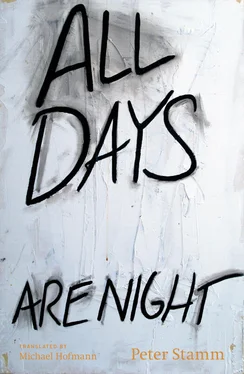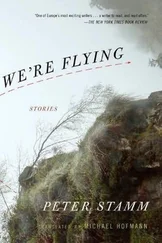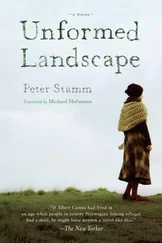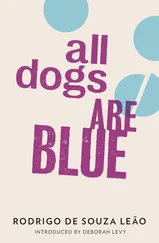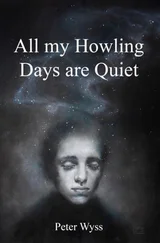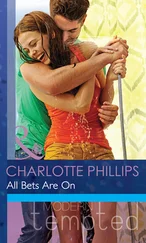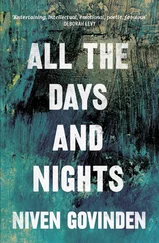Peter Stamm - All Days Are Night
Здесь есть возможность читать онлайн «Peter Stamm - All Days Are Night» весь текст электронной книги совершенно бесплатно (целиком полную версию без сокращений). В некоторых случаях можно слушать аудио, скачать через торрент в формате fb2 и присутствует краткое содержание. Год выпуска: 2014, Издательство: Other Press, Жанр: Современная проза, на английском языке. Описание произведения, (предисловие) а так же отзывы посетителей доступны на портале библиотеки ЛибКат.
- Название:All Days Are Night
- Автор:
- Издательство:Other Press
- Жанр:
- Год:2014
- ISBN:нет данных
- Рейтинг книги:3 / 5. Голосов: 1
-
Избранное:Добавить в избранное
- Отзывы:
-
Ваша оценка:
- 60
- 1
- 2
- 3
- 4
- 5
All Days Are Night: краткое содержание, описание и аннотация
Предлагаем к чтению аннотацию, описание, краткое содержание или предисловие (зависит от того, что написал сам автор книги «All Days Are Night»). Если вы не нашли необходимую информацию о книге — напишите в комментариях, мы постараемся отыскать её.
All Days Are Night — читать онлайн бесплатно полную книгу (весь текст) целиком
Ниже представлен текст книги, разбитый по страницам. Система сохранения места последней прочитанной страницы, позволяет с удобством читать онлайн бесплатно книгу «All Days Are Night», без необходимости каждый раз заново искать на чём Вы остановились. Поставьте закладку, и сможете в любой момент перейти на страницу, на которой закончили чтение.
Интервал:
Закладка:
With each new model, Hubert got a little calmer, and the pictures a little better. Eventually, the sessions became predictable, and he noticed he was beginning to get bored. This was shortly before the exhibition, and even as the pictures were praised and he spouted nonsense about them in interviews, he already knew that he would have to get going on something else. His gallerist told him about a series of paintings by an American artist who for fifteen years had painted the same woman, a neighbor. He hadn’t shown the pictures to anyone, not even his own wife or the woman’s husband had known about them. Hubert got hold of a catalog of the pictures and decided to concentrate on a single model. When Gillian visited him in his studio, he thought she might be the one.
The idea of painting Gillian didn’t let him go. As he went through the motions of completing his latest nude, he imagined how he would capture on canvas what he had seen in her face. Two weeks later she called. He disregarded the annoyance in her e-mails, he felt certain she was just as determined as he was. But the sessions went badly from the very beginning. Gillian had evidently imagined he would paint a portrait of her that she could put up on the wall at home, whereas he had no interest in just one picture. He had thought her presence would shape his paintings. He was on the point of throwing in the towel when she suggested posing for him naked. It wasn’t so much her nakedness that interested him as the hope that she might be unsettled by it. But it didn’t get any better. She struck attitudes. He had always left his models the freedom to be as they were, to make themselves comfortable. Gillian he forced into a pose that wasn’t her, really as a last desperate attempt to undermine her. But even that hadn’t worked, and he had given up.
Shortly after, Lukas was born. Once when Hubert took him to the pediatrician, he was leafing through magazines in a waiting room and ran into a short report on Gillian’s accident. He tried several times to write her an e-mail, but he couldn’t find the right words and gave up. The next time he was in the studio, several weeks later, he took the sketches of her off the walls.
Before setting off for the mountains, Hubert packed his outdoor gear he hadn’t used in twenty years and bought new hiking shoes and a waterproof. He was going on Monday. The weekend before, he had Lukas with him. They went to the zoo, and Hubert made pancakes, Lukas’s favorite. On Sunday he dropped him off a little earlier than usual. Astrid asked if he had time for coffee. While she put on water to boil, he looked at the notes on the fridge, a gynecologist’s card with an appointment marked in, Lukas’s timetable, a flyer for a tango evening. Dance to silence, he read.
Have you started going to that again?
Astrid tipped coffee into the filter. I talked Rolf into giving it a try.
And will you let him lead you? asked Hubert.
If someone knows what he wants, I’ll let myself be led, said Astrid.
She made the coffee, poured two cups, and gave one to him. He followed her into the living room where Lukas was playing with his Lego set. He wanted Hubert to play with him, but Astrid said there was something the grown-ups needed to discuss and went outside into the backyard. Hubert followed her across the little lawn and sat down under the sycamore on the rough bench he had built himself years ago. I’m amazed this is still in good shape, he said.
There are quite a lot of things of yours still here, said Astrid. That’s what I wanted to talk to you about. I’d be glad if you would take them away with you.
What would I do with a bench? said Hubert. I don’t have a garden.
I’m not talking about the bench, she said, I’m talking about your military uniform, your books, your records, your boyhood stuff, the telescope. The whole attic is full of your junk.
Hubert said he didn’t have much space in his apartment and asked why the sudden hurry.
What do you mean, sudden hurry? she said. You moved out almost a year ago now. She took a sip of coffee and stood up. I asked Rolf if he wanted to move in, she said as she walked off.
Hubert caught up to her by the garage. She opened the door. His things were all piled up inside.
You can come for them when you’re back.
Hubert drove home to finish packing for his trip. The whole time he was thinking about what he could possibly show. Late in the evening, he drove by the studio in the hope that his old stuff might inspire him, but it only depressed him. Astrid had asked him the other day for the photographs he had taken of her in the south of France. Hubert flicked through them and then put them up on a shelf with the other stuff. He had no intention of giving them to her.
He drove off in the morning. The sky was overcast, and it was raining lightly. Hubert left the Autobahn and took a gently climbing country road. The rain turned into snow, which fell more and more heavily in big, wet flakes. Hubert’s first idea had been to take the mountain pass, but shortly before the turnoff he decided to put his car on the train. When he got to the ramp, a train had just left. He got out to stretch his legs. The air was freezing cold and smelled of snow and cow dung. He thought about how futile it would be to try and capture this scene in a painting, the late snow, the damp chilly air, the slopes that came in and out of view behind the veil of snowflakes, the crudity of the concrete ramp and the tunnel entrance.
In the tunnel, Hubert left the car lights off. It was shortly before noon, and he listened to the weather forecast on the radio. When the train emerged from the tunnel, there was snow only on the upper slopes. The valley was green.
Hubert could only vaguely remember the imposing two-story cultural center. It was set in a fairly narrow gorge that the River Inn had dug into the valley. Originally the building must have belonged to the old spa hotel next door. Outside the hotel, which was now run by a chain of vacation clubs, there was a large sign welcoming new guests: TIME FOR FEELING. As Hubert got out of the car, he saw through some trees a group of children in costume led by a woman also in costume, running shouting through the hotel grounds. On the well-kept lawn there were a few deck chairs, none of them occupied.
Hubert stepped into the arcade that led up to the entrance to the cultural center, but the front door was locked. There was no bell, and no one answered when he knocked. In the arcade were benches and a table tennis table, a couple of rusty bicycles were propped against the wall. Hubert walked around the building. Along the side, a few steps led down to a narrow path that followed an iron fence that continued along the back of the building. The other side of the fence was the riverbank. The Inn was a yellowish-gray, the current was rapid.
Grass and little bushes had taken root between the weathered concrete slabs of the path. Roughly in the middle of the wall was a door, presumably to the basement. On the ground in front of the gate and along the walls there were thousands of black ants.
When Hubert emerged back in front of the cultural center, there was another car parked next to his, a bottle-green Volvo, and the front door was open. He entered the hall, off which corridors opened to either side. Hubert followed one of them and on one of the last doors found a handwritten sign that said ADMINISTRATION.
No sooner had he knocked than the door flew open, and a stout man stood in front of him, who had to be around about the same age. He embraced Hubert and patted him on the shoulder. Hubert couldn’t remember ever having seen him before.
They went out to the car park. Arno seemed astonished that Hubert had brought only a suitcase and a bag with him, and a couple of open cardboard boxes of slides and a projector.
Читать дальшеИнтервал:
Закладка:
Похожие книги на «All Days Are Night»
Представляем Вашему вниманию похожие книги на «All Days Are Night» списком для выбора. Мы отобрали схожую по названию и смыслу литературу в надежде предоставить читателям больше вариантов отыскать новые, интересные, ещё непрочитанные произведения.
Обсуждение, отзывы о книге «All Days Are Night» и просто собственные мнения читателей. Оставьте ваши комментарии, напишите, что Вы думаете о произведении, его смысле или главных героях. Укажите что конкретно понравилось, а что нет, и почему Вы так считаете.
